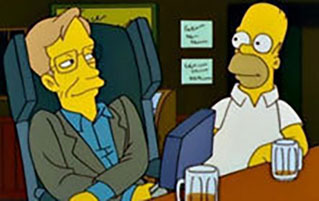3 Scientific Advances Predicted by TV Shows

Pop culture predictions of the future tend to be hilariously inaccurate. This phenomenon isn't limited to Kurt Russell movies.

Not pictured: anything that happened in 1997.
But occasionally they get some things right (or come close enough to be incorrectly verified by countless Tumblr users, which seems to happen to every prediction in the Back to the Future series at least once a year).
Star Trek Predicts the Hypospray
The hypospray, which is essentially Dr. McCoy's punctureless hypo from Star Trek, may make needles unnecessary in the near future (unless you're trying to mainline space heroin, in which case you might still want the needle to keep from wasting any of that H on your skin).

"Oh, you can just jam this directly against your pupil. I do it all the time."
Researchers at MIT recently made a successful version of the hypospray using "jet injection technology," which is gussied-up science talk for "It shoots you with drug bullets at the speed of medicine." The device blasts a high-pressure stream of liquid (hopefully a vaccine, but really anything you decide to load into the damn thing) right through the patient's skin, eliminating the need for an iodine swab or a bandage or any of that bullshit.
Jet injection has been around for a while (the military uses it for mass inoculations), but the new MIT device allows for much more precision, which could actually make it a viable needle replacement. We suppose it won't be long before we see insulin being sold in jet-injecting juice boxes for people with craaazy diabetes.
Futurama Predicts Asteroid Response
In an episode of Futurama, the world faces the threat of an asteroid made of garbage that the city of New York had previously sent into space, because Futurama is both topical and hilarious. To defeat said asteroid, the Earth fires more garbage at it to knock it off course and send it flying harmlessly by.

"Welp, it's coming our way. Better start cramming the cast of Animal Practice into a cannon."
Last year, a real-life asteroid was projected to collide with Earth at some point in February 2013. The scientific community began seriously considering different methods by which to thwart the asteroid (despite the fact that the obvious solution is to throw Bruce Willis at it while Morgan Freeman makes a speech on television), and at the top of their list was "knock it off course by crashing something into it," because they apparently spend all their time watching cartoons instead of making science.
Luckily, the Futurama theory never needed to be tested, because they eventually determined that the asteroid was actually of little to no consequence.

"... should we shoot anyway? I mean, everyone's already in the cannon."
The Simpsons has managed to be a surprisingly prescient show over the years. Past episodes have featured a Siegfried and Roy duo being mauled by one of their tigers, an octomom getting her own TV show, and the Rolling Stones touring into their 60s long before any of these things ever actually happened.

Or should have happened.
In one episode, brain-on-wheels Stephen Hawking tells Homer in passing, "Your idea of a doughnut-shaped universe intrigues me, I may have to steal it."
Recently, NASA scientists concluded with 99.6 percent certainty that the universe is round (in a multi-dimensional galaxy-farting hypersphere sort of way), but flat. In other words, the universe is vaguely doughnut-shaped.

If there's a black hole somewhere near the center, this is a slam dunk for Homer Simpson.
It seems that astrophysics spent the last 13 years catching up to The Simpsons. Meanwhile, The Simpsons has gotten so self-referential that viewing an episode is like watching a 50-year-old comedian muttering to himself in an empty room. Astrophysics clearly came out ahead, but neither should be terribly proud of that decade.
Andrew is an environmental biology student and a musician. You can help him in his ska music endeavors by liking his page here, downloading his album, or both!